Like others who want to make a difference in the collision industry, Caliber Collision recognized the critical need to address the technician shortage.
“We’re all affected by it,” said Eddie Hightower, Caliber’s senior vice president of sustainability/social responsibility. “The industry, drivers and policyholders are all impacted by not having enough technicians.”
Hightower said Caliber realized this problem would not get better unless someone took action.
“Given our position in the industry, we felt a special obligation to do our part,” he said.
After much research and discussion, the company created the Technician Apprentice Program (TAP) in 2022. The program was spearheaded by Yohanna Peet, Caliber’s TAP’s senior program manager.
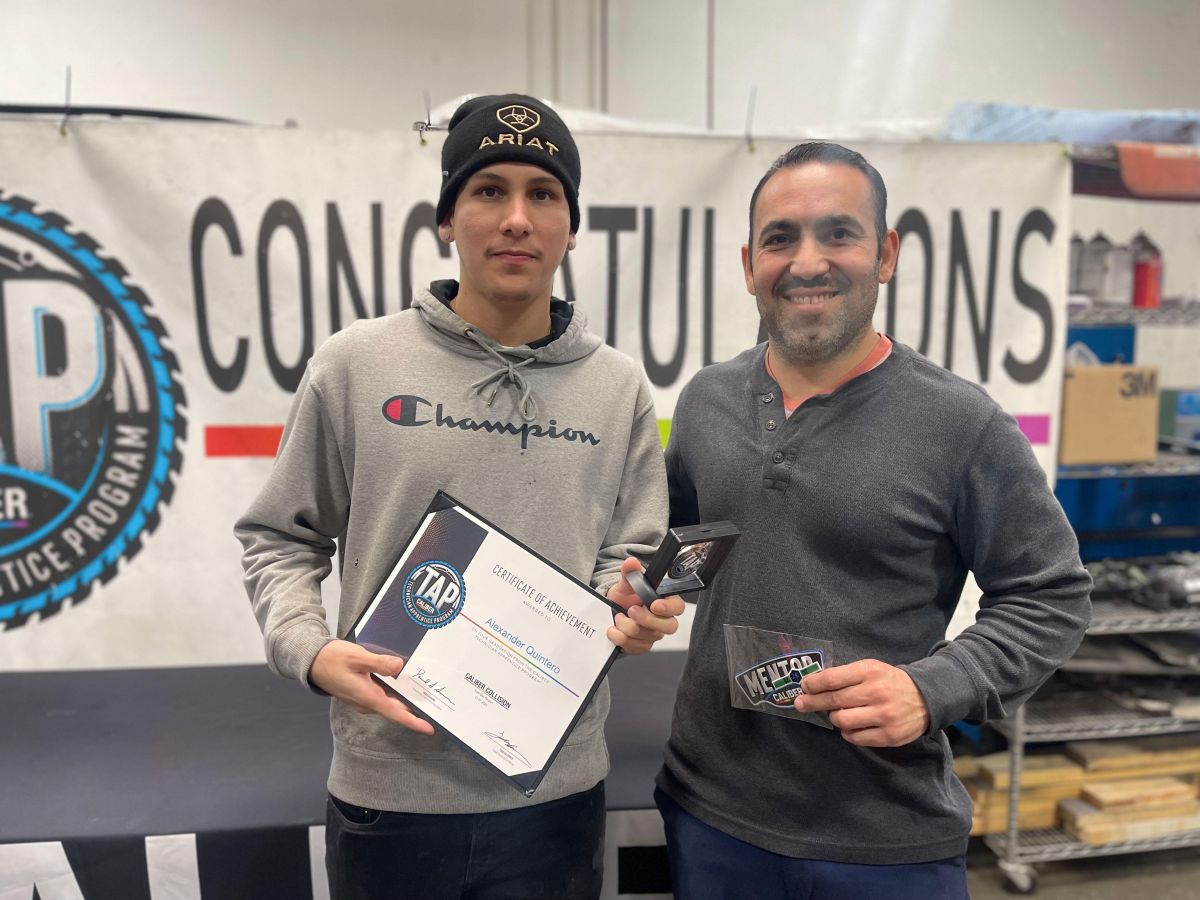
“Scaling TAP across our organization is one of my proudest career moments,” said Peet. “I had the opportunity to engage with teammates across the country to understand what was important to them through their journey in TAP.”
She said the bottom line for all is purpose.
“Our mentors felt a responsibility to develop the next generation of technicians,” she said. “Many of them shared the same sentiment, ‘Someone taught me; now it’s my turn to teach.’ For many of us, TAP is our opportunity to give back to this industry that has given so many of us, so much.”
TAP was formally launched that year to Caliber’s 30,000 teammates at 1,700 locations in 40 states.
Unlike other industry programs, Hightower said TAP is focused on skills development.
“It is a competency-based program that is somewhat different from some of the other time-based programs available that are two to three years in length,” explained Hightower, who now leads TAP.
The program consists of 16 competencies based on I-CAR training. It typically takes apprentices about 10 months to one year to complete.
About three to four months into the program, apprentices begin helping their mentors work on production vehicles. They must demonstrate they meet the required competencies before graduating.
However, the training doesn’t end there. Apprentices are watched closely for the next six months to ensure vehicles are repaired to pre-accident condition and are safe to drive.
“We want to make sure that our apprentices know how to do the job of a technician,” said Hightower.
As the program began rolling out, experienced technicians were asked to help train body helpers to become full-fledged technicians.
Hightower said they pass on knowledge and expertise daily but often don’t realize they are doing it. By formalizing the program, supporting mentor techs and incentivizing them with a bonus, Caliber is finding mentors with much success.
After experiencing what it is like to help an apprentice, Hightower said mentors typically look forward to working with their next mentee.
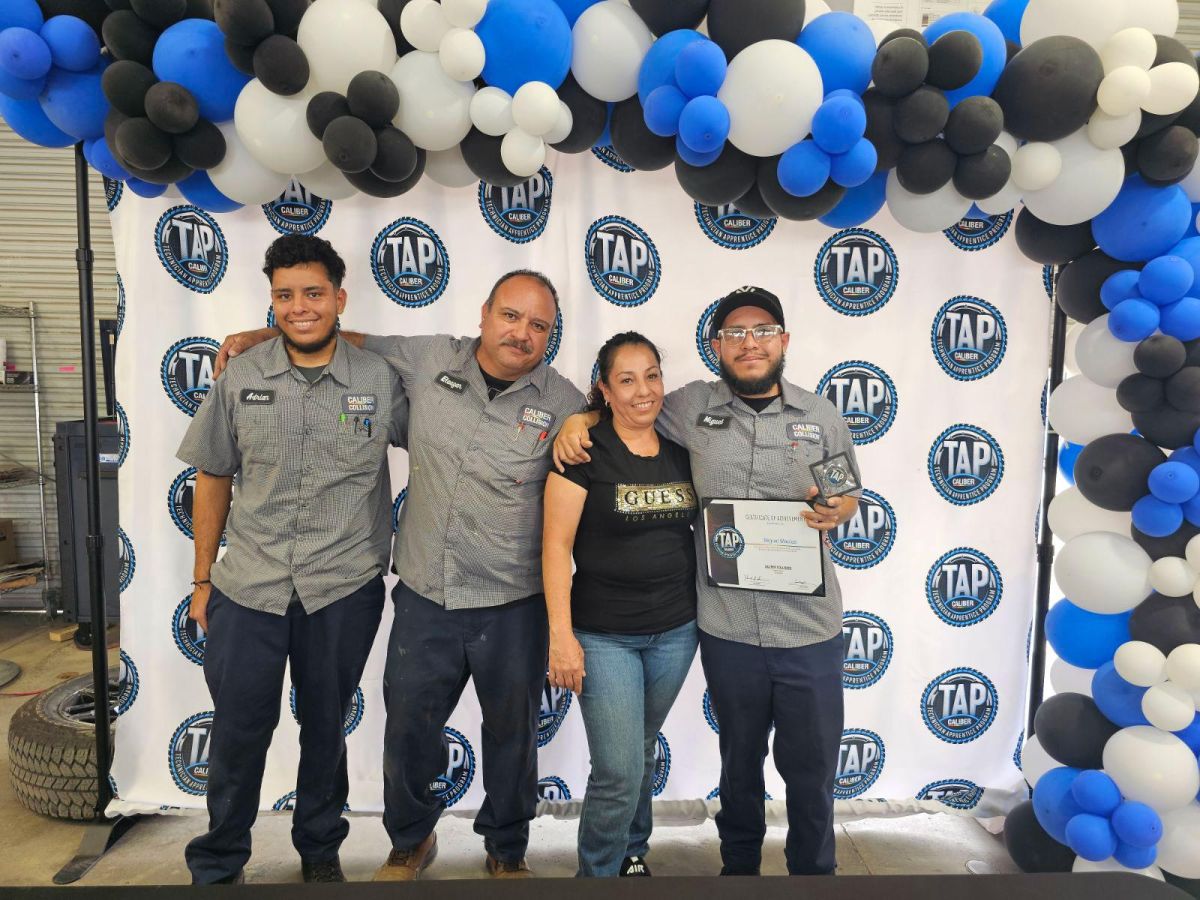
“Our mentor techs benefit from the program because they have a person working on their team who is actually turning a wrench,” he said.
Another difference compared to other industry programs is apprentices are paid more than the typical entry-level wage. They also receive health benefits and are eligible for a 401(k) retirement program with a company match. Upon graduating, they are provided with a tool allowance as a gift.
“They receive the benefits of being an actual teammate from day one, and when they graduate, their earning potential is around $70,000,” said Hightower.
Apprentices earn I-CAR and welding certifications, as well as the EPA AC certification.
Caliber has found these benefits have helped reduce the turnover rate among technicians.
Hightower said the program has really taken off; the goal is to continue building it out.
In its inaugural year, Caliber graduated more than 250 techs. In 2023, more than three times that number of technicians completed the program. About two-thirds of Caliber’s locations are now participating in TAP, which equates to 2,000 active apprentices teamed up with 2,000 mentors.
With the technician shortage worsening, Caliber’s goal is to continue producing 2,000 technicians a year for the industry.
“The only limiting factor is having enough mentors and technicians to fill the need,” he noted.
Throughout the country, field recruiters visit high schools and trade schools looking for participants.
Although the average age of apprentices is 18 to 21 years old, there are older participants looking to change careers, such as those in the technology sector. Caliber has also found many women interested in careers as technicians.
For students who are looking for a hands-on career focused on art and technology, Hightower said this is a perfect fit.
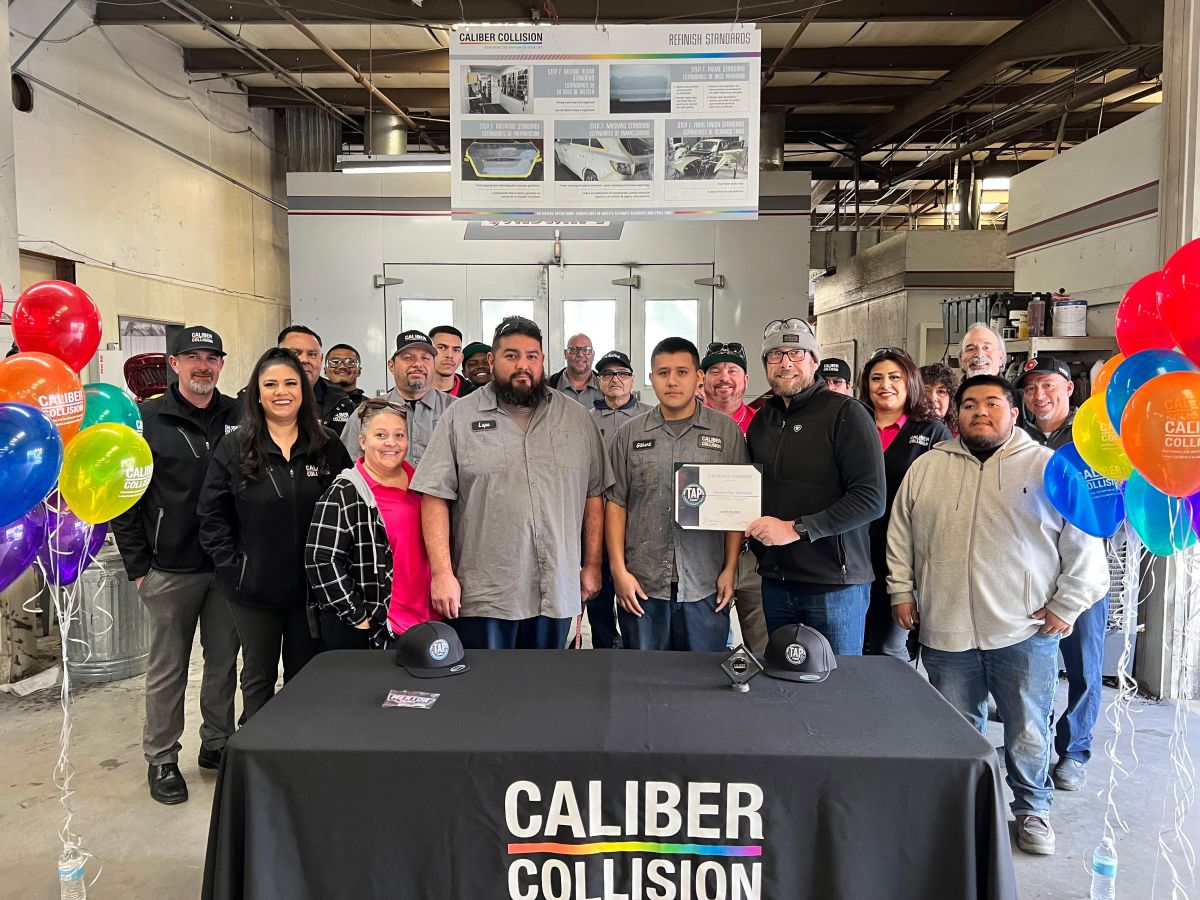
“We call them artisans because they can look at a crumpled fender on a car and see what they can produce,” he said.
Hightower said this is a big deal to apprentices.
“These are lifelong skills that are fully transferable,” said Hightower. “We’re changing their lives by setting them up with a skill they own.”
Landon learned about TAP while attending the collision repair program at Tennessee College of Applied Technology. He has been enrolled in Caliber’s program for about a year.
“I have learned many of the nuances and procedures essential for the best outcomes possible while also managing my workflow and time,” he said. “Better time management leaves more room to produce better work.”
Since joining TAP and being paired with a mentor, Landon said he feels as if he can accomplish twice as much in the same amount of time without stress.
Gabriel, who has been at Caliber for nearly six years and currently works at Caliber Milpitas in California, decided to become a mentor to share his knowledge with the younger generation.
“As an apprentice myself in this industry, I understand how hard it is not having a mentor to help me improve,” said Gabriel. “I wanted to make a change by being there for someone like me.”
Gabriel has worked with a few apprentices, demonstrating basic teardowns and repair methods.
“We start with plastic welding and repairing bumpers, then move on to dents and using the correct tools to pull,” he explained. “I teach apprentices how to remove spot welds without damaging panels and allow them to practice.”
Gabriel shows apprentices how to rack up cars correctly on the frame machine when learning how to do sheet metal pulls. He encourages apprentices to keep an open mind when repairing vehicles and stresses the importance of organization and quality.
“I teach each apprentice the seriousness of safety while repairing vehicles, and that includes disconnecting batteries to make sure that we are safe during repairs,” he said.
Gabriel stressed the importance of mentoring the next generation by building their confidence.
“That way, when they go out on their own, they know they can do their work and not question their ability,” he said.
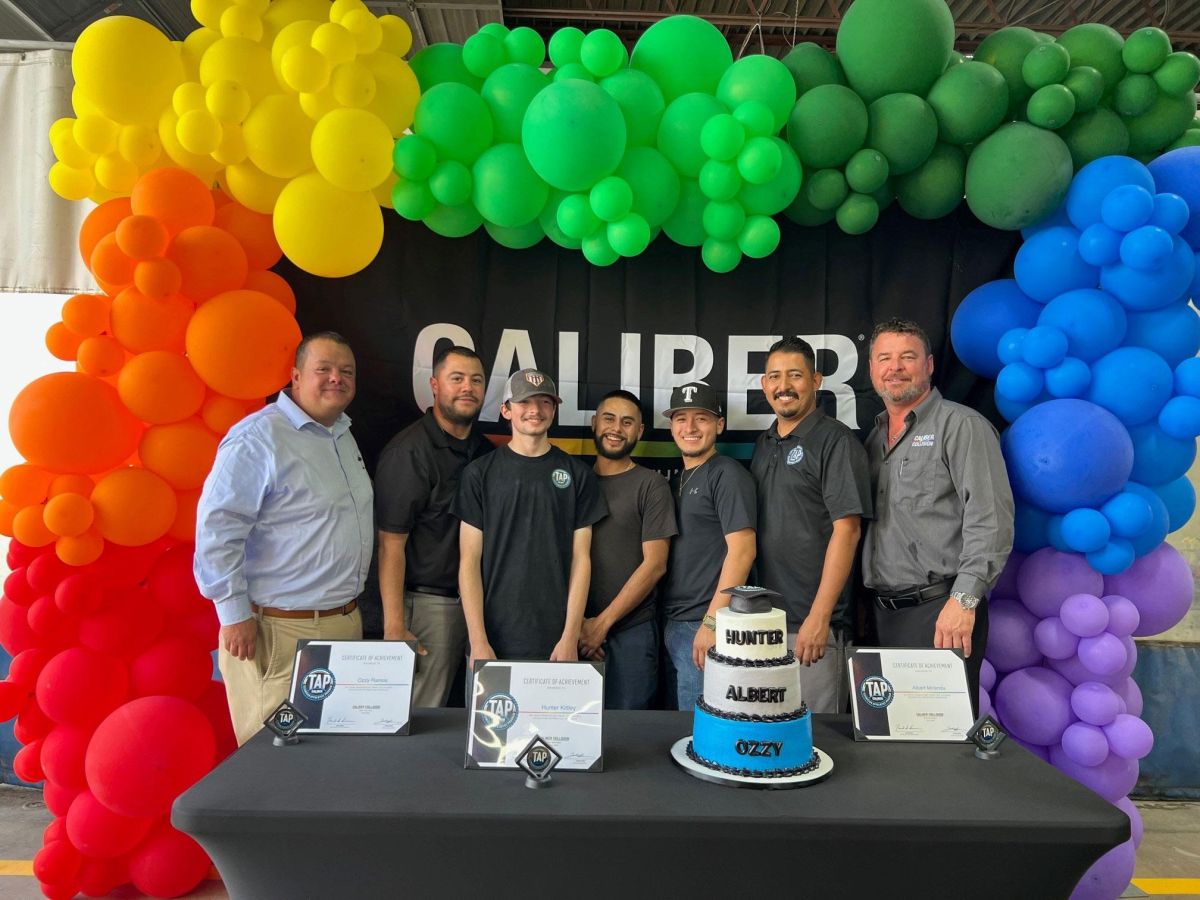

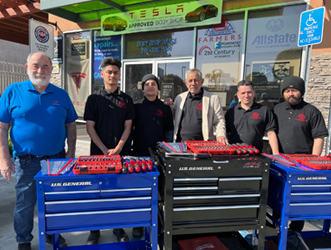

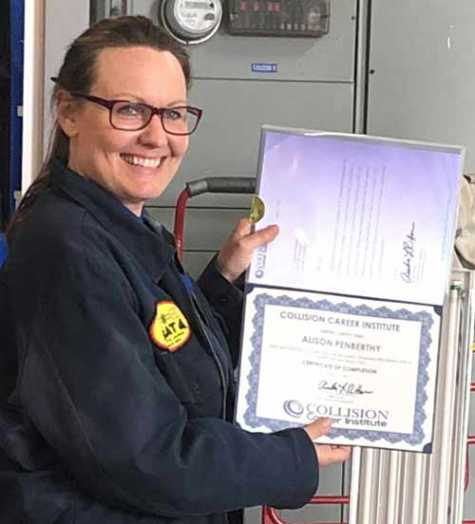










Stacey Phillips Ronak